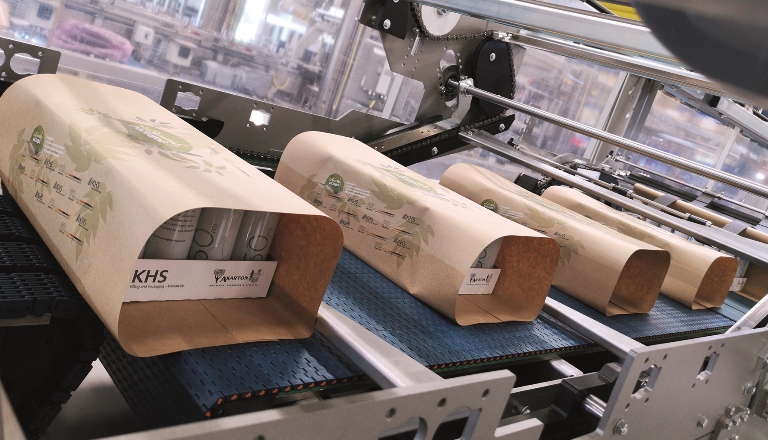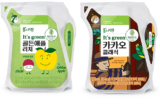Right now, in autumn 2020, under the effects of the COVID-19 pandemic, hygiene and health shape consumers’ perception and actions. However, sustainable products with resource-friendly production remain important to people, as well.
In a study by the Fraunhofer Institute ISI in Karlsruhe on the fifty trends influencing Europe’s food sector by 2035, approximately fifteen of them are closely connected to sustainability. According to this study, “sustainable production and value chains” save between €280 and €470 billion a year. The Institute also considers “strict waste legislation” to be an influencing factor in the future development of the sector. The waste legislation of the European Union currently demands that manufacturers must intensify recycling and re-use of recycled material for packaging in future.
Questions of sustainability are already an integral part of the world of food and beverage manufacturing – with consumers also demanding solutions. According to a study by market research group Mintel, 44% of US-American millennials say that environmentally friendly brands best portray the personal values of their generation. The key players in the industry see two starting points. One is a direct approach: How can the manufacturing of beverages and liquid food be made sustainable? The other is an indirect approach: How can the packaging and selling of these products make it as simple as possible for the consumers themselves to regularly protect the environment.
Raw materials as a starting point for sustainability
There are many options for beverage manufacturers who are looking for a starting point to produce environmentally efficient products. The first key: certified raw material. For drinks manufacturing, certifications indicate the sustainable and fair cultivation of basic and raw materials. Manufacturers take part in initiatives such as Fairtrade, the Rainforest Alliance and UTZ, and with the certification of their raw materials they back platforms such as SAI/FSA (Sustainable Agriculture Initiative / Farm Sustainability Assessment).
For example, with sustainable and monitored hops, nearly any brewery can take their first step as early as the raw material procurement stage. Suppliers of flavours and ingredients also have certified products in their portfolio that, in the case of NFC products (not from concentrate) for example, guarantee a natural and pristine taste experience.
Shifts in the supply chain are also an unmistakable sign that sustainability solutions close to manufacturing – and, with them, reductions in CO2 – are on the rise in the beverage industry, allowing for less transport along with more environmental protection. The Budweiser Brewing Group, for example, reports that its production sites in Great Britain get up to 100% of their malt from UK sources. To this end, the brewing group works closely with farmers and retail partners that have introduced a new type of grain specific to the requirements of the United Kingdom.
Of course, the industry must think beyond its own applications. One successful example of this open-ended way of thinking is the use of beer draft in food manufacturing. Waste material from beer manufacturing can be used in muesli, flour, chips or even men’s cosmetics.
The world’s leading trade fair, drinktec, has its finger on the pulse by putting this topic in a top position as the future direction of the industry. In Munich, from October 4 to 8, 2021, drinktec will offer a comprehensive information platform on the focal point of the future, sustainability in the beverage industry. For more visit drinktec.com



